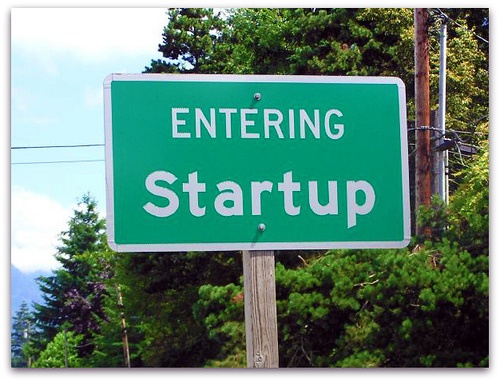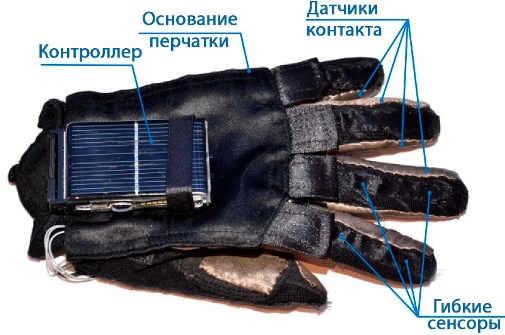20 startups that will change the world
Many of us have discovered that technology is the perfect way to change the world for the better. With the work of such funds as the Gates Foundation , social accelerators such as Wayra UnLtd and Nominet Trust 100 , and of course, with the help of the Internet, the future is now shining brighter than ever.

Below we will look at 20 startups from around the world who change our everyday life and how we will live. From health projects in Uganda and the Amazon Forest Protection Program to a crowdsourcing platform in Iceland, inspiring projects are changing the world.
What social organizations would you like to add to the list? Write in the comments.
')
Like Code.org in Silicon Valley, Code Club World wants to give every child in the world a chance to learn programming. The service provides all the necessary materials and basics to help conduct clubs for programming after school.
A smartphone app monitors skin changes and moles for early warning of skin cancer. This turns the smartphone into a data-collector, which gives the doctor additional information to help in making a diagnosis.
Using a crowdsourcing platform, Iceland decided to rewrite its constitution. Any citizen who visits the site will be able to contribute to the development of this document. The Althing, the Icelandic parliament, ratifies the conclusions after two consecutive parliamentary assemblies and one general election.
Life Lens is a mobile application that accurately analyzes blood samples for malaria control - an attack that kills 30,000 children per day. The application reduces the number of "false positive" diagnoses, allowing more efficient use of money and resources to combat the disease.

"Your things may still be useful ... Be useful, too."
Freecycle is a growing network with over 9 million users worldwide who are ready to give away goods for free instead of throwing them out. This is a non-profit movement of people who share products and things in their city for free.
Bookshare is the world's largest online library for people with such a disease as blindness. The organization has a network of technological, corporate and non-profit advisers, as well as a community of patrons.
This web-based platform helps charitable organizations create the right level of emotional attachment for long-term, trusting relationships. Social projects can show their contribution to the development of society and how money financed in projects is spent.
ZubaBox is a solar-powered internet hub that allows African people in the wilderness to use Wi-Fi and ensure long-term sustainable development in the poorest countries in the world. To date, the company has provided more than 114,000 computers to the most remote communities in Africa.
Blind Square is an augmented reality GPS system for the visually impaired. The application receives environmental information from Foursquare and OpenStreetMap , also uses its own high-quality voices in different languages to communicate information about the user's environment.
Hole-in-the-Wall is a free computer built into the wall to allow poor children in India to use it for the first time. Since its inception in 1999, the shop has grown from a single computer in New Delhi to more than 100 computers in various locations throughout India and abroad.
These are mobile, high-tech medical centers that provide medical facilities in Brazil to communities in need. It is a non-profit organization that focuses on low-income people — the population lacking access to quality medical care.
Moms Rising is an organization of mothers in the United States who are trying to make the United States more family-oriented country. The organization already has more than 1 million members who are trying to influence legislation, as well as promote fair treatment of mothers and women.
It is a global movement of 55,000 people, communities and organizations struggling to prevent human trafficking throughout the world. In October 2013, this initiative will be supported at the first conference on trafficking in children ( Counter Child Trafficking ) in London.
“Internet for farmers without Internet”, WeFarm allows farmers to ask questions, share tips and advice on local SMS with thousands of members around the world. WeFarm uses the Internet and a unique peer-translation system to share this knowledge across the platform.
Imazon is the first independent deforestation monitoring system in the Brazilian Amazon using technical maps and satellite imagery.
Imaging the World provides ultrasound images over the Internet from rural maternity homes in Uganda to diagnostic centers. This is changing global medicine through a revolutionary concept of technology integration, training, and communities — providing medical expertise and high-quality healthcare in remote and underserved areas.

These gloves are equipped with sensors that recognize sign language, translate gestures into text on a smartphone, which, in turn, converts text into spoken words. The concept of the project consisted of one sensor on each glove and a mobile device that drives the recognition process.
This initiative provides secure access to open genomics data for research and allows researchers to share large amounts of data. This solves the problem of data confidentiality, since the scientific community does not have the infrastructure for complex data access.
EnergyDeck is a UK community platform that helps organizations reduce energy costs. This initiative is consistent with the UK directive to reduce carbon emissions by 20% by 2020 and by 80% by 2050.
It is an online world that helps children manage their mood and improve emotional intelligence in a fun and engaging way. It helps alleviate mental health problems, such as depression and anxiety in children and young adults, and creates a positive effect on public health.

Below we will look at 20 startups from around the world who change our everyday life and how we will live. From health projects in Uganda and the Amazon Forest Protection Program to a crowdsourcing platform in Iceland, inspiring projects are changing the world.
What social organizations would you like to add to the list? Write in the comments.
')
1. Code Club World
Like Code.org in Silicon Valley, Code Club World wants to give every child in the world a chance to learn programming. The service provides all the necessary materials and basics to help conduct clubs for programming after school.
2. Skin Analytics
A smartphone app monitors skin changes and moles for early warning of skin cancer. This turns the smartphone into a data-collector, which gives the doctor additional information to help in making a diagnosis.
3. Icelandic Constitution
Using a crowdsourcing platform, Iceland decided to rewrite its constitution. Any citizen who visits the site will be able to contribute to the development of this document. The Althing, the Icelandic parliament, ratifies the conclusions after two consecutive parliamentary assemblies and one general election.
4. Life Lens
Life Lens is a mobile application that accurately analyzes blood samples for malaria control - an attack that kills 30,000 children per day. The application reduces the number of "false positive" diagnoses, allowing more efficient use of money and resources to combat the disease.
5. Freecycle

"Your things may still be useful ... Be useful, too."
Freecycle is a growing network with over 9 million users worldwide who are ready to give away goods for free instead of throwing them out. This is a non-profit movement of people who share products and things in their city for free.
6. Bookshare
Bookshare is the world's largest online library for people with such a disease as blindness. The organization has a network of technological, corporate and non-profit advisers, as well as a community of patrons.
7. Trustparency
This web-based platform helps charitable organizations create the right level of emotional attachment for long-term, trusting relationships. Social projects can show their contribution to the development of society and how money financed in projects is spent.
8. ZubaBox
ZubaBox is a solar-powered internet hub that allows African people in the wilderness to use Wi-Fi and ensure long-term sustainable development in the poorest countries in the world. To date, the company has provided more than 114,000 computers to the most remote communities in Africa.
9. Blind Square
Blind Square is an augmented reality GPS system for the visually impaired. The application receives environmental information from Foursquare and OpenStreetMap , also uses its own high-quality voices in different languages to communicate information about the user's environment.
10. Hole-in-the-Wall Project
Hole-in-the-Wall is a free computer built into the wall to allow poor children in India to use it for the first time. Since its inception in 1999, the shop has grown from a single computer in New Delhi to more than 100 computers in various locations throughout India and abroad.
11. CIES
These are mobile, high-tech medical centers that provide medical facilities in Brazil to communities in need. It is a non-profit organization that focuses on low-income people — the population lacking access to quality medical care.
12. Moms Rising
Moms Rising is an organization of mothers in the United States who are trying to make the United States more family-oriented country. The organization already has more than 1 million members who are trying to influence legislation, as well as promote fair treatment of mothers and women.
13. Stop the Traffic
It is a global movement of 55,000 people, communities and organizations struggling to prevent human trafficking throughout the world. In October 2013, this initiative will be supported at the first conference on trafficking in children ( Counter Child Trafficking ) in London.
14. WeFarm
“Internet for farmers without Internet”, WeFarm allows farmers to ask questions, share tips and advice on local SMS with thousands of members around the world. WeFarm uses the Internet and a unique peer-translation system to share this knowledge across the platform.
15. Imazon
Imazon is the first independent deforestation monitoring system in the Brazilian Amazon using technical maps and satellite imagery.
16. Imaging the World
Imaging the World provides ultrasound images over the Internet from rural maternity homes in Uganda to diagnostic centers. This is changing global medicine through a revolutionary concept of technology integration, training, and communities — providing medical expertise and high-quality healthcare in remote and underserved areas.
17. Enable Talk Gloves

These gloves are equipped with sensors that recognize sign language, translate gestures into text on a smartphone, which, in turn, converts text into spoken words. The concept of the project consisted of one sensor on each glove and a mobile device that drives the recognition process.
18. DNAdigest
This initiative provides secure access to open genomics data for research and allows researchers to share large amounts of data. This solves the problem of data confidentiality, since the scientific community does not have the infrastructure for complex data access.
19. EnergyDeck
EnergyDeck is a UK community platform that helps organizations reduce energy costs. This initiative is consistent with the UK directive to reduce carbon emissions by 20% by 2020 and by 80% by 2050.
20. Karisma Kidz
It is an online world that helps children manage their mood and improve emotional intelligence in a fun and engaging way. It helps alleviate mental health problems, such as depression and anxiety in children and young adults, and creates a positive effect on public health.
Source: https://habr.com/ru/post/190916/
All Articles